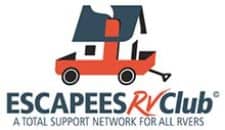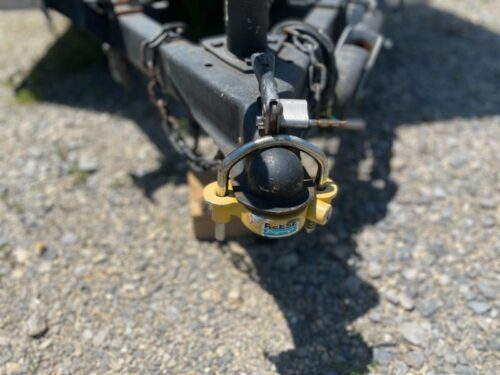RV insurance can be much more complicated than standard auto insurance. In addition to liability and accident protection, you also need to consider attachments such as solar panels and satellites, as well as the value of any personal property inside the RV.
This FAQ is your guide to learning the ins and outs of RV insurance coverage.
Some of the product links are on this page are affiliate links. If you click through and purchase, I may receive a small commission at no extra cost to you. See Privacy Policy. Thanks!
Table of Contents
Most Popular RV Insurance FAQs
Which company offers the best RV insurance?
Almost any auto insurance provider will also cover your RV for basic liability. There are also a number of companies that provide specialized RV insurance, such as Good Sam. These providers typically offer customized packages that allow you to choose coverage based on your specific personal needs.
Each policy has many variables that take some or all of the following into account:
- RV type and model
- The state in which the policy is issued (insurance laws vary by state)
- Other vehicles in the household
- Driving history of insured parties
- Amount of coverage desired, etc.
From Charlie Kerekes: In our first two years of living as full-timers, we have thoroughly researched RV insurance options twice. What we can recommend are several companies that offer specialized RV insurance. These companies have put a significant effort towards understanding RVers’ insurance needs. They are:
Good Sam is more than an insurance agency. They actually partner WITH the nation’s largest insurers, like Progressive and Liberty Mutual. They’ve been around since 1996. Good Sam members enjoy significant discounts for fuel, propane, campgrounds, and at major retailers like Camping World.
How Is RV Insurance Different from Auto Insurance?
A standard auto policy can actually be used for an RV, but this typically isn’t an ideal solution. There are many special characteristics of an RV that will not be covered by an auto insurance policy, including:
- Replacement of personal property inside or attached to the RV
- Campsite liability
- Expenses incurred while your RV is being repaired, forcing you to live in a different location
An RV is a vehicle, and as such, most insurance companies will be happy to issue a policy.
However, insuring an RV with a typical auto policy will leave significant coverage gaps.
Therefore, RV’s should be insured with a specialized policy which covers the things an auto insurance would miss, such as:
- Total loss replacement — This coverage is applicable to buyers of new RV’s in the first five model years. It replaces the RV with a similar unit, even if the replacement costs more than the original. This coverage is good protection against steep RV depreciation, in case of total loss.
- Replacement cost of personal belongings — Auto policies usually cover a limited amount of content in a vehicle. RV policies give you the option to specify a limit to include all of your personal belongings destroyed by most events.
- Fulltimer liability — Offers liability coverage similar to homeowner’s insurance when the RV is parked and is used as a residence. This coverage includes emergency treatment and medical expenses for others injured in or around your RV.
- Campsite liability — Similar to fulltimer liability, but designed for short-term vacationers.
- Emergency expenses — Reimburses expenses related to living outside the RV while it is being repaired, as long as the covered loss occurs a set number of miles from your fixed residence (usually 50 miles). Common expenses covered are lodging, meals, and travel back home.
- Higher liability limits — RV insurance policies allow for significantly higher liability limits than auto insurance. Because most RV’s are much larger than cars, they have the potential to cause a significant amount of damage in a mishap. Higher limits provide greater financial protection after an unfortunate incident.
- Medium duty tow trucks — Covers trucks over one ton when used to tow a trailer or fifth wheel.
- Suspend collision coverage when in storage — When the RV is in storage, you can suspend portions of the policy which apply only when the RV is moving on the road, such as collision coverage. This is a cost-saving option because you are not paying for unnecessary coverage.
Please be aware that insurance companies may call the above coverages by slightly different names. Be sure that you understand the terms used in a policy quotation, and what they cover.
How Much Does RV Insurance Cost?
The average yearly price for RV insurance is around $1000 a year, and the general yearly range for RV insurance is from 500 to 3000 dollars. Just like auto insurance, there are many factors that can influence the final price of your coverage, including:
- Age, condition, and class of RV
- How your RV is used (If you live in your RV full-time, additional coverage on personal property is recommended)
- Your zip code
- Driving record
- Years of RV driving experience
- Installation (or not) of anti-theft measures
- Insurance claim history
- Requirements your loan provider may have for additional coverage
How Can You Save Money on RV Insurance?
Just like auto insurance, there are ways to lower the cost of your RV insurance, including:
- Shop around and get quotes from a few providers
- Bundle your RV insurance with other insurance policies
- Have a good driving record
- Install safety equipment or anti-theft measures
- Choose a policy that has a storage option for when your RV is not in use
RV Insurance FAQs for First-Timers
Why Should You Consider RV Insurance?
An RV is an expensive purchase, meaning any damage can be a significant financial setback. Additionally, an RV is a very large vehicle, giving it the potential to cause large damage to other vehicles or property in the event of a collision. Comprehensive RV insurance can help mitigate your personal liability in the event of an accident.
Should You Buy RV Insurance?
An RV is a vehicle, meaning liability insurance is an actual legal requirement. However, there are many other forms of RV insurance that may be worth your consideration, depending on how you use your RV. Read on for more information to help you understand the details.
What Exactly Is Covered By RV Insurance?
Good RV insurance providers allow you to customize your coverage to suit your needs. A few of the coverage options include:
- Liability
- Collision
- Total loss replacement
- Emergency expenses (lodging, food, rental)
- Towing
- Full-time coverage (applicable of your RV is also your full-time home)
- Uninsured motorist coverage
- Loss or damage of personal effects inside or attached to the RV
- Vacation liability coverage
- Pet injury
- Coverage while RV is in storage
What Are The Different Classes of RV Insurance?
Just as RVs typically come in three classes (A, B, and C), insurance for RVs also comes with these three classes. The class of your RV factors into the cost of insurance, with a general rule of thumb that the more expensive the RV, the more expensive the insurance.
What are the Different Types of RV Insurance?
For damage to the actual RV itself, there are four types of coverage to choose from.
- Purchase price coverage reimburses you for the original purchase price of the vehicle. This is generally only offered for vehicles that are fairly new.
- Replacement cost coverage reimburses you based on the limit your RV is insured for.
- Guaranteed replacement cost replaces your vehicle with a brand new model. This coverage is considered the best, but it is also the most expensive.
- Actual cash value coverage reimburses you based on the NADA Guide listed value of your RV.
Is RV Insurance Legally Required?
An RV is considered a motor vehicle, so liability insurance is required. Additional insurance coverage is recommended, but not required.
Do You Still Need RV Insurance When Your RV is Not Being Used?
Some insurance providers will offer a storage option for your RV. This allows you to suspend collision and liability coverage while maintaining the rest of your coverage. This is a great way to save money when your RV will be off the road for months at a time.
Does RV Insurance Cover Your Personal Property Inside the RV?
Most RV insurance providers will allow you to purchase coverage that also insures your personal belongings inside the vehicle. This insurance also covers attachments such as awnings, satellite dishes, grills, and more.
Is Your RV Covered By Homeowner’s Insurance?
A towable RV may not need additional coverage when it’s parked at your home. However, the second it hits the road it is no longer covered by homeowner’s insurance. You’ll definitely want to look into a dedicated RV insurance policy to ensure you have proper coverage.
Does RV Insurance Protect You From Accidents?
Just like auto insurance, RV insurance protects you in the event of an accident. This applies to collisions on the road as well as when parked.
RV Insurance FAQs for Full-Timers
What Is Full-Time RV Insurance?
Full-time RV insurance is for those who live in their RV full-time, or for a large part of the year. This is similar to homeowner’s insurance, and provides better coverage for personal liability and medical incidents. In general, this will double the cost of the overall policy.
Does RV Insurance Cover You Outside the U.S.?
Some insurance providers will only cover you while traveling in the United States, and others will also cover you in Canada or Mexico. It’s important to check this detail if you plan to travel outside the country.
What Are the Special Conditions for Medium-Duty Trucks?
Yes, there are special conditions you should be aware of before buying a medium duty truck (MDT). Common medium duty trucks used by RVers:
- Chevrolet Kodiak
- Freightliner FL60 and FL70
- Ford F-450 through F-650
- GMC TopKick
- International 4700
The following may cause you difficulties in getting MDT insurance:
- No coverage for trucks over one ton — Some insurance companies will not issue a policy for trucks over a one ton, or weighing 10,000 lbs. or more.
- Insured as a commercial vehicle — If an insurance company does cover medium duty trucks, they may only insure them as a commercial vehicle. This is generally not a good option for RVers because commercial insurance is more expensive and has strict mileage limits from the address of registration.
- Covered as an RV tow vehicle only — This is the most common policy offered by RV specialty insurance: the medium duty truck is fully covered as a private vehicle, but must be used mainly to tow the RV. With these policies, the truck may not be used as an every-day vehicle for commuting, sightseeing, etc. This type of coverage is ideal when the RVer has another vehicle for daily use, but may be too restrictive if the truck is the only vehicle. In our experience, insurance agents and companies do not always point out this restriction—be sure to ask before buying the policy!
- Covered as a personal vehicle, with special conditions — Some insurance companies will work with you to cover a medium duty truck as a personal vehicle, if the truck’s actual weight (GVW) is less than 10,000 lbs. In these cases the insurance company may require an inspection of the truck, photos, and documentation to prove its weight. If a policy is issued under these conditions, the truck can be used as an every-day vehicle. This is how we secured insurance for our 9,500 lbs. F-550 truck through Travelers.
See also: Truck Classification.
Andy Herrick is a blogging nerd, #8 Enneagram, wannabe bread baker, INTJ, RV industry professional, and small business entrepreneur. He can be found hanging out with his lovely wife and family, skiing, cycling, climbing, hiking, and convincing anyone who will listen why dogs aren’t really that great of pets. Also, he runs this website.
-
Andyhttps://changingears.com/author/andrew-herrick/
-
Andyhttps://changingears.com/author/andrew-herrick/
-
Andyhttps://changingears.com/author/andrew-herrick/
-
Andyhttps://changingears.com/author/andrew-herrick/








